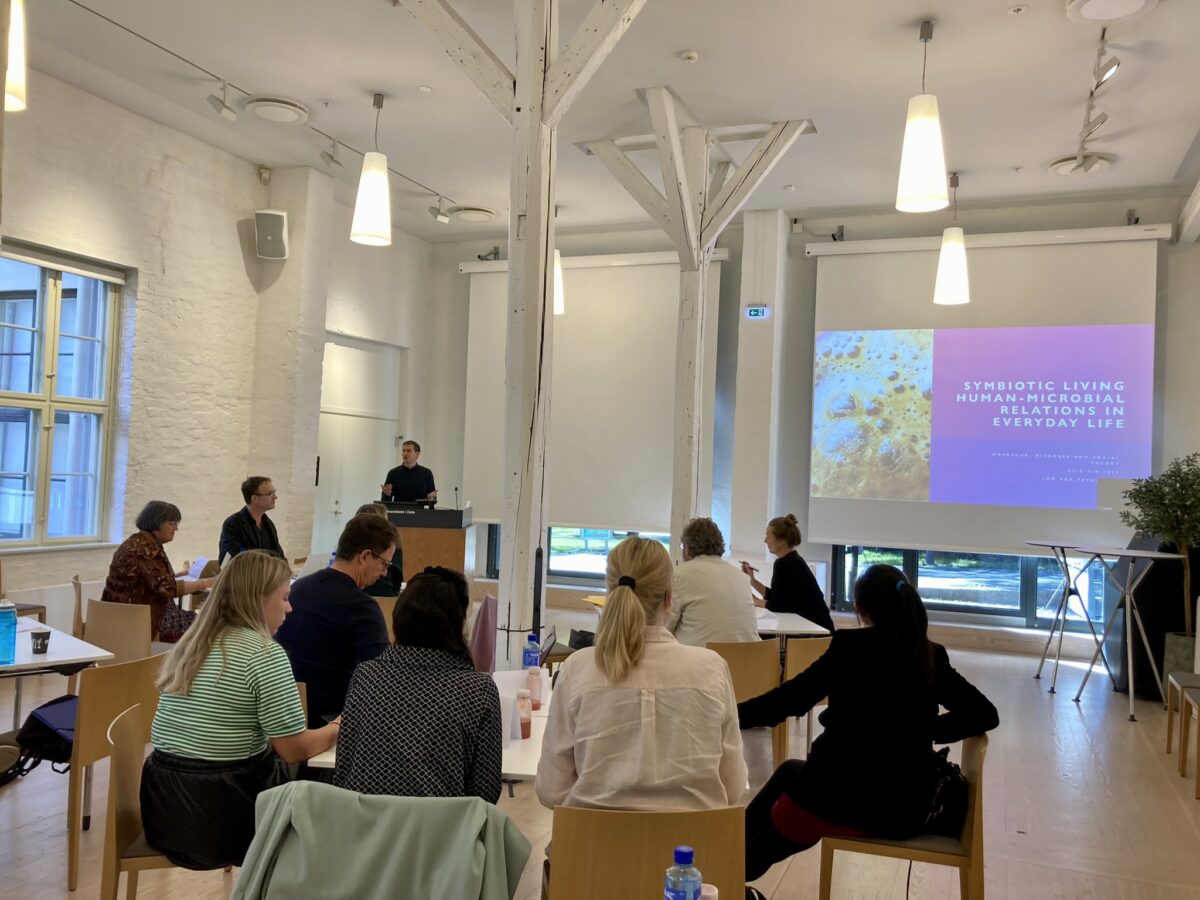The workshop Microbes and Social Theory took place in Oslo, Norway, between 31st of August and 1st of September. The workshop brought together diverse academics within social sciences and humanities working in Norway, Finland, Sweden, Denmark and Iceland. The workshop was organized by the Institute of Health and Society in Oslo in collaboration with the NOH-HS funded Nordic Network for the Social Study of Microbes. The focus of the workshop was to explore meeting points between microbes and microbial worlds with social science thinking. The aim was to explore new openings that could help develop tools and concepts that enables new ways to think about health, ecology, and justice in a microbial world.
The workshop was organized as a combination of short input presentations and discussions based on the world café method (http://theworldcafe.com/key-concepts-resources/world-cafe-method/). The group discussed concepts, terms, and processes in microbiology that have generative potential for social and cultural theory:
Digestion, gut-brain, animal, species, shit/dung, metabolism, soils and soiling, rhizosphere, mucus, mold, more-than-human, fermentation, probiotics, antibiotics, symbiosis, immunity, resistance, health as/and ecology, hygiene, identity, holobiont, organism, homo microbis and scale.
A lively discussion took place around how people from different research traditions and disciplines can research human-microbial relations together. This is one of the challenges with the Symbiosis project which raises several questions: How do we combine different sets of data? How can scholars from different disciplines write together? This includes different styles of presentation, production of knowledge and different analytical and methodological traditions.
Categories
Microbes and Social Theory
